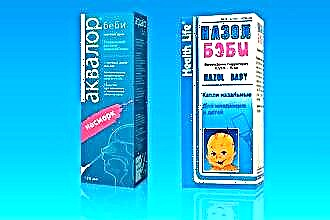A dry cough indicates the onset of a bacterial or viral infection in the airways. Often this condition is complemented by symptoms such as fever, general malaise, headaches, and a runny nose. The spasm of the respiratory tract does not bring relief, while sputum is not secreted, which leads to microdamage to the mucous membranes of the trachea, pharynx and bronchi. Herbs for dry cough will help to correct the situation, they have high biological activity.
The mechanism of action of plants
 To understand how expectorant herbs work with a dry cough, you need to understand what processes this breathing disorder is caused by. Spasm occurs when pathogens enter the airways. To get rid of them, the body uses a reflex defense - cough. If it is not accompanied by sputum production, this means that viruses and bacteria are not removed from the bronchi and lungs and continue to multiply there. Herbal medicine helps turn an unproductive cough into a productive cough.
To understand how expectorant herbs work with a dry cough, you need to understand what processes this breathing disorder is caused by. Spasm occurs when pathogens enter the airways. To get rid of them, the body uses a reflex defense - cough. If it is not accompanied by sputum production, this means that viruses and bacteria are not removed from the bronchi and lungs and continue to multiply there. Herbal medicine helps turn an unproductive cough into a productive cough.
Plants have a beneficial effect on the mucous membranes of the respiratory tract. They significantly alleviate the patient's condition, help eliminate severe coughing attacks and accelerate recovery by stimulating the production of sputum.
Also, medicinal herbs have the following properties:
- relieve inflammation of the mucous membranes;
- thin out phlegm;
- stimulate productive coughing;
- disinfect;
- fight viruses and bacteria;
- eliminate pain syndrome;
- soothe mucous membranes;
- promote healing.
What herbs to use?
All herbs that help heal dry coughs have mucolytic properties. However, each has its own characteristics and additional mechanisms of action on the body. Based on the disease and its course, you can choose a suitable remedy for the treatment. Let's consider the most popular types of plants that are used in therapy.
| Plant name | Action | Application features |
| Coltsfoot | Disinfects mucous membranes, relieves inflammation, reduces edema, and improves coughing. | Due to its emollient properties, it is used to treat bronchitis, pneumonia, and throat inflammation. |
| Plantain | A powerful anti-inflammatory agent with mucolytic properties. | It is used for inflammatory diseases of the upper and lower respiratory tract. |
| Thyme | Fights inflammation, kills germs, stimulates expectoration. | It is prescribed for the treatment of pneumonia and bronchitis, it is effective at elevated body temperature. |
| Liquorice root | Strengthens the secretion of the mucous membranes of the respiratory tract, gently removes sputum, disinfects. | Due to the fact that it is not an allergen and has a very mild effect, it is used to treat children. |
| Ginger | Warms, gently removes bacteria from mucous membranes, fights viruses, stimulates the immune system. | Effective in the treatment of lingering diseases, used as an additional immunomodulatory agent. |
| Linden blossom | Natural powerful antiseptic and mucolytic. | It has a good effect on paroxysmal coughs, soothes mucous membranes and relieves pain. |
| Elecampane | Dissolves phlegm, stimulates its excretion. | It is used to relieve symptoms of viral and bacterial diseases. |
Herbal decoctions
Each herb individually has a positive effect on the patient's body, and if you mix several types of plants, you can get a powerful drug. Basically, decoctions are prepared from dry raw materials and taken until the symptoms of the disease disappear. Let's consider the most popular recipes.
 Elecampane root. To prepare a medicinal broth, you need to thoroughly grind the rhizome, so it can give the maximum amount of nutrients. We take 2 tablespoons of raw materials, pour into a thermos and pour boiling water. Let it brew, take 1/3 cup three times a day before meals. If you don't have a thermos, take a tablespoon of the root and pour 0.5 l of water, boil over low heat for 10-15 minutes, strain the finished broth and take 2 tablespoons every hour.
Elecampane root. To prepare a medicinal broth, you need to thoroughly grind the rhizome, so it can give the maximum amount of nutrients. We take 2 tablespoons of raw materials, pour into a thermos and pour boiling water. Let it brew, take 1/3 cup three times a day before meals. If you don't have a thermos, take a tablespoon of the root and pour 0.5 l of water, boil over low heat for 10-15 minutes, strain the finished broth and take 2 tablespoons every hour.- Coltsfoot. The medicine is prepared from 1 tablespoon of dried herbs and a glass of hot boiled water. We combine the components and let it brew for one hour. We filter the drink and take 1 tablespoon 3 times a day.
- Thyme. A medicinal broth must be prepared from 15 g of dried raw materials, fill it with a glass of hot water and simmer in a water bath for 15 minutes. Then remove from the stove and cool. When the product is infused, filter it and add boiled water to its original volume. We take in the dining room 3 times a day before meals.
Cooking broths has its own characteristics, and they must be taken into account in order to obtain a medicine, and not just herbal tea. First of all, the raw materials must be of high quality, grown in ecologically clean regions and properly dried, this can be found in a pharmacy.
You also need to take into account that you cannot cook mixtures, otherwise they will lose all their healing properties. They insist on ready-made medicines in a slightly open container, the collection must "breathe", otherwise it will be ineffective.
Herbal inhalation
 Eliminate dry cough will help not only decoctions, but also herbal inhalations. This is an especially effective procedure, it is better to combine it with oral administration of funds, so you can achieve a speedy recovery. The set of plants will be the same as for indoor use. Inhalation of healing vapors will help clear the mucous membranes of the throat and nose, expand the bronchi, and increase the secretion of phlegm.
Eliminate dry cough will help not only decoctions, but also herbal inhalations. This is an especially effective procedure, it is better to combine it with oral administration of funds, so you can achieve a speedy recovery. The set of plants will be the same as for indoor use. Inhalation of healing vapors will help clear the mucous membranes of the throat and nose, expand the bronchi, and increase the secretion of phlegm.
When carrying out therapy, observe the following rules:
- if you do not have a steam inhaler, use a wide container with thick walls for the procedure, this can be a saucepan or a ceramic bowl;
- you can inhale the vapor only when the liquid cools down a little, so as not to burn the mucous membranes;
- it is better to breathe through the mouth and nose in order to affect both the lower and upper respiratory tract;
- carry out inhalations under a thick towel or blanket so that the healing vapors do not come out from under it;
- if there is a desire to clear your throat during the procedure, be sure to do it, sputum discharge is a sure sign that you are doing everything right;
- carry out inhalations for no more than 15 minutes;
- wrap yourself in a warm blanket immediately after the procedure;
- inhale vapors no more than 3 times a day.
How not to harm yourself?
 Any remedy, even natural, has contraindications. This also applies to herbal ingredients, because in some cases they turn out to be very effective. Herbal medicine may be incompatible with some medications, this should be taken into account when using herbs.
Any remedy, even natural, has contraindications. This also applies to herbal ingredients, because in some cases they turn out to be very effective. Herbal medicine may be incompatible with some medications, this should be taken into account when using herbs.
In addition, medicinal plants contain biologically active substances that can stimulate various processes in the body. This should be taken into account for people who have any chronic or systemic diseases, disorders of the functioning of internal organs.
Pregnant women, nursing mothers and the elderly need to be especially careful when choosing cough suppressants. Also, herbal medicine is prescribed to children carefully and individually in each case.
Let's summarize
Herbal medicine is a powerful tool for eliminating dry coughs.Some herbal remedies are much more useful and effective than chemical drugs, but they cannot be used alone to treat serious respiratory diseases.
The use of decoctions and inhalations is possible only after consulting a doctor and making a diagnosis.

 Elecampane root. To prepare a medicinal broth, you need to thoroughly grind the rhizome, so it can give the maximum amount of nutrients. We take 2 tablespoons of raw materials, pour into a thermos and pour boiling water. Let it brew, take 1/3 cup three times a day before meals. If you don't have a thermos, take a tablespoon of the root and pour 0.5 l of water, boil over low heat for 10-15 minutes, strain the finished broth and take 2 tablespoons every hour.
Elecampane root. To prepare a medicinal broth, you need to thoroughly grind the rhizome, so it can give the maximum amount of nutrients. We take 2 tablespoons of raw materials, pour into a thermos and pour boiling water. Let it brew, take 1/3 cup three times a day before meals. If you don't have a thermos, take a tablespoon of the root and pour 0.5 l of water, boil over low heat for 10-15 minutes, strain the finished broth and take 2 tablespoons every hour.

